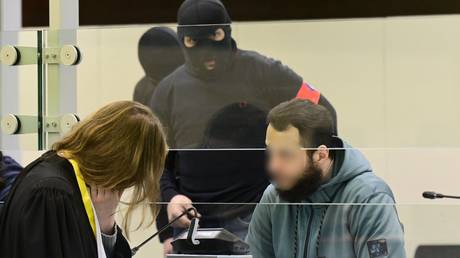
The deadliest peacetime attacks in the country’s history left 32 dead and nearly 900 injured
Six alleged members of Islamic State (IS, formerly ISIS) were convicted of terrorist murder in Belgium on Tuesday in connection to the 2016 bombings of Brussels’ subway and airport, local media outlets reported on Tuesday.
Those convicted of murder included Salah Abdeslam, who is currently serving a life sentence without parole for his role in the 2015 Bataclan theater bombing in Paris; Mohamed Abrini, who is serving 22 years for his involvement in the Bataclan attack; Oussama Atar, who was convicted in absentia and believed to have died fighting for IS in the Middle East; and Osama Krayem, Ali El Haddad Asufi, and Bilal El Makhoukhi, all of whom face up to 30 years in prison when they return for sentencing in September.
Sofien Ayari and Herve Bayingana Muhirwa were acquitted of murder but found guilty of participating in a terrorist group, while Smail and Ibrahim Farisi were acquitted of all charges.
The jury took two weeks to deliberate and was expected to need several hours to read the verdict, having been given 300 questions to consider by the court before making their decision.
The suicide attacks targeting Zaventem international airport and Maelbeek metro station left 35 dead and nearly 900 injured, amounting to the most violent day in Belgium’s peacetime history. The court officially raised the death toll from 32 on Tuesday due to connections between the additional deaths and the bombing, including one woman who had survived the airport attack but opted to end her life via euthanasia.
Krayem claimed that while he was supposed to blow himself up in the suicide attack at the airport, he changed his mind at the last minute and fled with his life. Abrini also avoided having to follow through with the “suicide” part of “suicide bombing,” though he testified that this was because his explosives failed to detonate.
Abdeslam was the sole survivor of the IS cell behind the Bataclan bombing after his own explosive vest failed to go off during the attack. The sentence he received for that crime was the most severe possible in France and has only been handed out four times.
The seven-month trial at the former NATO headquarters was the largest in the country’s history, with hundreds of plaintiffs and witnesses testifying for seven months under extreme security. The indictment and charges alone reportedly filled about 500 pages.




